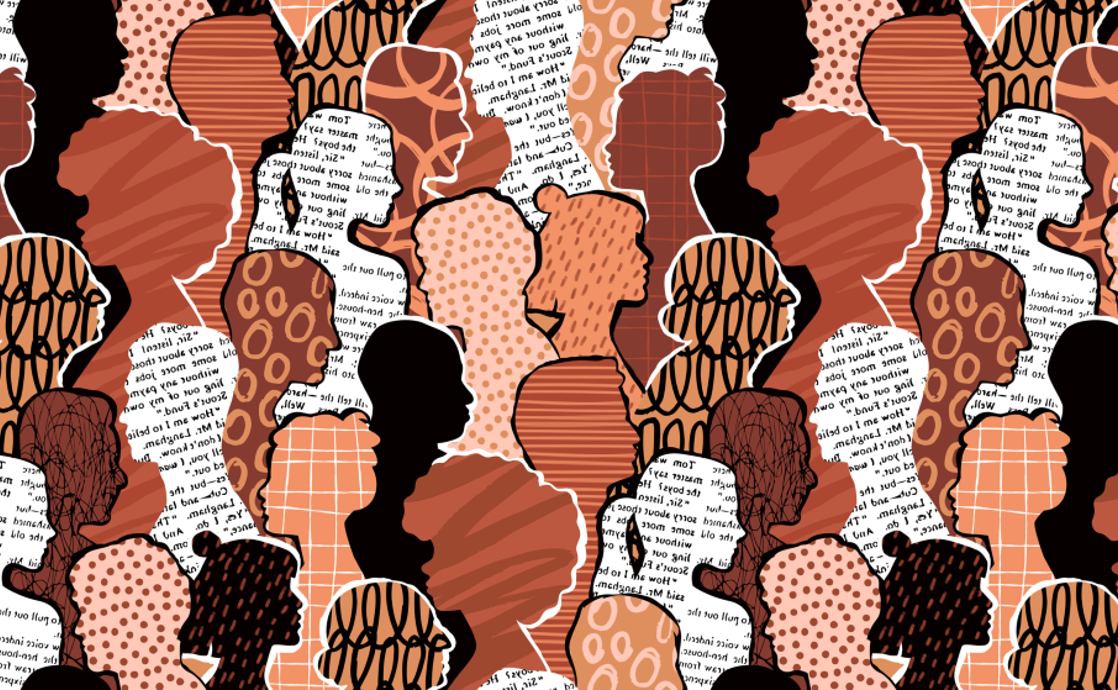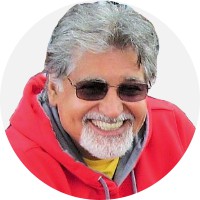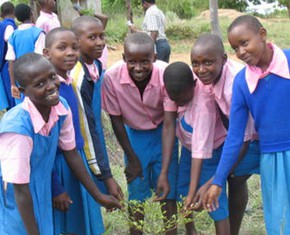The views expressed in our content reflect individual perspectives and do not represent the authoritative views of the Baha'i Faith.
To achieve the oneness of humanity, we need to build inclusive, cohesive communities worthy of the future – communities that welcome and encompass everyone.
How can we possibly do that? It’s not easy, because each community is different, consisting of people of different ages, cultural backgrounds, religious beliefs, sexual orientations, political views, and financial means. The diversity in our population requires a unifying force, so everyone can experience peace, harmony, love, a sense of belonging and inclusion.
RELATED: How the Arts Help Build Vibrant, Peaceful Communities
Not too many places in our world currently deal with this challenge well. Many social issues have paralyzed progress and dis-unified society. In his writings Abdu’l-Baha set the high Baha’i standard for achieving human unity:
… each of the creatures is a sign of God, and it was by the grace of the Lord and His power that each did step into the world; therefore they are not strangers, but in the family; not aliens, but friends, and to be treated as such. Wherefore must the loved ones of God associate in affectionate fellowship with stranger and friend alike, showing forth to all the utmost loving-kindness, disregarding the degree of their capacity, never asking whether they deserve to be loved.
Several social issues have caused rifts in our societies, contributing to disharmony and divisions among people. In some cases, these differences have created estrangement, misunderstanding, even hatred and violence. Let’s look at three of these issues and ponder a few possible solutions.
Mental and Emotional Health
The pace and pressure of modern life has created an increase in the number of people with anxiety, depression, and other mental disorders. Millions of people suffer from these illnesses. Sadly, most societies and communities attach a stigma to people with mental and emotional conditions, which makes their lives much more complicated and obstructs their hope of being healed.
Fortunately, health professionals and people from all walks of life increasingly understand the importance of mental health. Many societies worldwide have begun to recognize the impact of these problems. The well-known athletes and celebrities who openly admit that they struggle with their mental health provide society with a healthy sign, because their openness signals that emotional health is more important than fame, medals, and trophies – and permits more people to recognize the importance of their mental health.
Humanity has long dealt with emotional issues at every level in every profession, but the general advice has been to “toughen up.” That approach, which fails to address the gravity of the problem and then forcibly tries to push people through the pain and stress, doesn’t work.
Instead, physical and emotional illnesses require effort to overcome, and having patience is a great asset in facing these challenges. Improvements take time, and patience helps you survive the difficulties one day at a time. This is where communities can show their support – with tolerance, love and acceptance playing a tremendous role in easing the struggles and sufferings of those souls who suffer from these afflictions.
Emotional and mental problems can be remedied temporarily with the help of medicine, but the question remains whether they sufficiently address the origin or the causes of these issues. The future direction of solutions to mental and emotional challenges is essential for humanity’s happiness, well-being, and progress. We must widen our horizons and recognize that people who suffer from emotional and mental health challenges need more than medicine and professional help – they need our love and understanding, as part of our human family. By helping them, we allow ourselves to build a caring and loving community.
Integrating the Elderly
In many Western societies, we have segregated older people in “senior” communities and nursing homes. In doing so, we’ve lost the treasures of their experience and wisdom, which can serve the younger generations who need it so desperately.
In other cultures, the elderly are looked upon with respect and reverence, as great resources for everyone younger. But in the global West, except in traditional Indigenous cultures, elders are often seen as a burden on families and social programs.
Our culture — especially social media — gives the impression that the world revolves around the young. Hollywood reinforces the idea that the world is a playground for the young. Perhaps that’s why it’s hard to imagine a productive place for the elderly in modern society. It often seems like every movie, television show, and commercial (except the pharmaceutical ones) cater exclusively to the young.
This represents such a contrast to my awareness as a Baha’i that our souls never age. The body’s condition should not distract us from nurturing the soul, no matter how old we are. Our elders have been separated from society to take care of their physical needs efficiently, and their spiritual and human needs have been overlooked.
We should approach older people as spiritual beings, regardless of their physical frailties. There is so much that can be accomplished through our elders’ resources and wisdom — if only society could begin to see them in the right light. Rather than allowing them to waste away in sanitized homes where dreams die faster than bodies, we should provide them with the means to achieve goals they may have set for their golden years. The Baha’i International Community’s statement on this reality says:
… there must be full integration of the aging in the human community, since the community should be an extended family in which everyone, of any age, is an essential part, and not only allowed, but encouraged, to make the fullest possible contribution to the well-being of the whole … in considering the needs of the aging in the process of development we must take into account the wholeness of the human being, the moral and spiritual dimension, besides his emotional, intellectual, and physical nature when discussing the special contributions of older persons to development and their sharing in the resulting benefits.
So let’s reverse course – rather than segregating seniors, let’s integrate elders into the day-to-day life of the community. Let’s change our mindset to see elders as a source of untapped wisdom and knowledge.
RELATED: Transformative Leadership: Empowering Young Hearts and Minds
Youth and Our Future
The younger generations increasingly pay the price for the mistakes of the older generations. In pursuit of material gain the previous generations sacrificed natural resources and beauty. We damaged the environment without considering the future of the planet. We left the harmful legacy of global warming for our children to tackle. The younger generations – with a dimmer future, less job security, and fewer opportunities to live comfortably and more securely – will continue to struggle with the legacy we leave them.
In most cultures and societies, it’s all too common for older people not to trust the judgment of younger people – but that prejudice ignores some of the insight and courage of younger generations. The Universal House of Justice, the global governing body of the Baha’i Faith, addressed the world’s youth by saying: “Undoubtedly, it is within your power to contribute significantly to shaping the societies of the coming century; youth can move the world.”
Young people today do not want to repeat the mistakes of the past by overemphasizing the achievement of wealth at any cost, or as the main reason for living. What previous generations missed are the spiritual and moral goals to offset the damage created by excess material progress. This lust for material progress has brought us to such a critical state that younger generations feel there will be no future left for them to enjoy. Their cries and protests can now be heard all over the world.
The world’s present problems have overwhelmed us, because our solutions are outdated and ineffective. The planet needs a new and fundamental change in its outlook and approach to tackling the ever-increasing crises we face – and that change will come from young people.
The recent challenges of our time have awakened the youth and brought forward many individuals who have exemplified passion, wisdom, and devotion to such an extent that they inspire admiration. Our future depends on the insight, the creativity, and the active involvement of the younger generations – so let’s encourage and support them!
You May Also Like
Comments

















I agree. This subject is close to my heart and for my part, I am building a home "Nazz Rest Home" in India where thousands of elders have no support from the government or family with nowhere to live. Elders are our untapped human resources